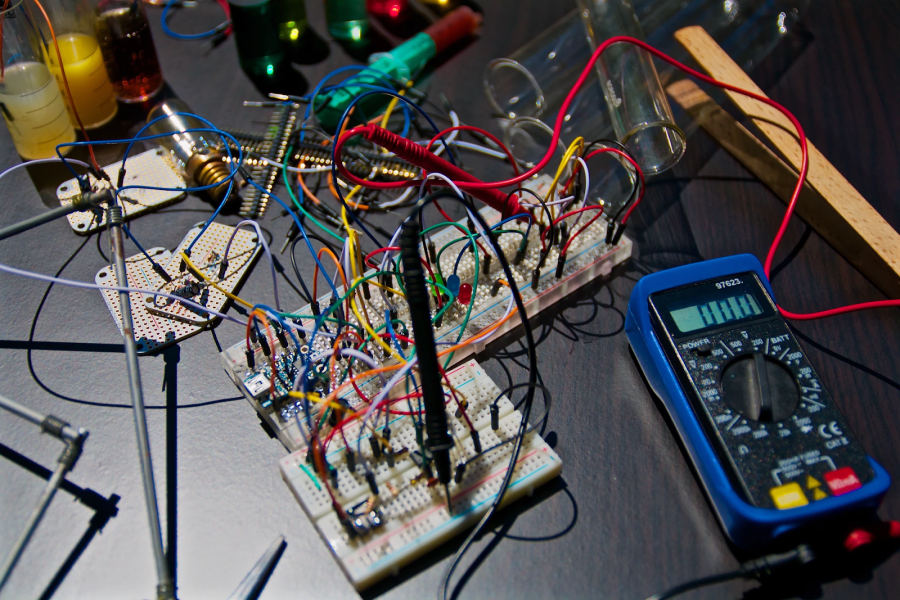Part P of Building Regulations in the UK – Definition, Scope and Rules
What is the Part P Definition?
The Regulatory Impact Assessment is a key tool to improve the overall quality of regulations in the UK. For years, this assessment has helped mitigate the weight of issues on businesses when it comes to compliance with building regulations.
Back in 2005, the UK government estimated that approximately 30% of accidents connected with electrical malfunctions could be averted by imposing a tighter Building Regulations act.
Hence, Part P of the aforementioned law came into being.
If you’re about to carry out any type of electrical installation or repair to your office or commercial property, the job has to comply with safety requirements in the Building Regulations.
That’s why we’ve prepared this guide to help.
Read along,
According to Part P, all installations should be done safely to protect people from incidents, such as electrocution or fire.
In other words, if changes to the present electrical installations at your commercial space/office/ place of business are made, then Part P applies with full power.
However, some of the necessities in the regulations, particularly for kitchens and outdoor areas, have been removed back in 2013. The full details are on Communities.gov.uk – the Local Government website.
Part P regulation is in effect in England and Wales, so if you are operating as tradesmen there, you have to comply with it. Scotland has its own Building standards system which differs from the Building regulations, whereas Northern Ireland is yet to establish such rules.
Part P comes off as a solution to reducing the number of incidents, that are caused by faulty electrical installations. This regulation also sees improving the quality and competence of tradesmen throughout the UK. and also the mandatory use of first aid kits. The work safety of tradesmen is complete when they attend a course in Basic Life Support (BLS).
The scope of electrical work under Part P regulation
It’s fairly simple and straightforward – any electrical installation job that’s done outdoors or indoors must meet the standards.
You also have to bear in mind that if you carry out electrical work, you should hire a registered tradesman who’s under the Government approved scheme for electrical providers. Your other option is to directly report all of the installation details to your local community building control department.
So, for what type of work the building control DOESN’T have to be notified about?
You don’t have to notify your local authority about carried out electrical work when you:
- Replace a single circuit cable, when it’s damaged by a rodent, impact or fire, under the condition that you don’t meddle with the existing cable route or you don’t change its electrical current capacity.
- Replacing small accessories such as light control switches, sockets, or ceiling roses.
- Adding light switches or fixes to an already existing electrical circuit.
There are some special cases and locations, where you still SHOULD notify the government. Check them out here.
How to employ a certified tradesman
In order to be sure that the work will be done safely and all the regulations will be abided by, it’s recommendable to hire an electrician who’s checked in with the Competent Person Scheme (or CPS for short). Those are the people with extensive knowledge and in-depth skills required for a job of this calibre.
CPS, a government-approved certification scheme, comes as a direct evaluation of electrician’s skills to perform electrical work, complying with Part P regulations.
With similar restrictions in Australia, Jordan Venturi from Westline Electrical Services Ltd. advises to always double check if the tradesmen or company are fully licensed and what reviews of jobs done have to say. You should always ask for full credentials and proof of license.
What Does Part P Mean for My Business?
Suppose you want to use a certified electrician for your upcoming electrical job. You’re in for a hassle-free job not only because the final result will meet the requirements for electrical installations under BS 7671 (the national standard, that is) but also because you will receive:
- A Building Regulations Compliance Certificate;
- An Electrical Installation Certificate.
Both certificates together state that your installation passes government standards. It is a crucial step when it comes to having a properly operating business.
Am I Held Responsible for Part P compliance?
In short, yes. It’s a crime not to meet Part P regulations, and business owners/building managers are required by the law to prove that their electrical installation meets the governmental standards.
If any electrical work doesn’t meet the Building Regulations, by law, you can be ordered to revert or fix the non-compliant job.
Preparation before electrical work:
You have to inform your local government about the planned electrical installations or employ a CPS-approved electrician.
The Benefits of Hiring a Part-P Compliant Tradesman:
- Insurance-protected guarantee that the work will be carried out under the regulations. If it doesn’t meet the standard, you can make an official complaint
- The electrician will arrange the certification of the installation
- No risk of government building control charges being incurred on you
Can’t I just do everything by myself?
No. Unless you have passed an electrician training course that is. If you carry out non-approved electrical work, your business is liable to a hefty 5000 pound fine.
How to Comply with Part P Law?
There are three main aspects which render your electrical work compliant with the law:
- Obtain a direct government certification – If you are a tradesman yourself, then you should register as a skilled electrician.
- Receive certification from a third-party registered electrician.
- Notify the Government Building Control to check the work done at your office/commercial space. You can always resort to the services of a governmental inspector. (However, keep in mind that employing a certified electrician comes with fewer expenses on your side.)
Gotchas & Takeaways:
Using the services of a certified professional will give you the safety cushion and proof that no breach of law will occur.
Share It on :





